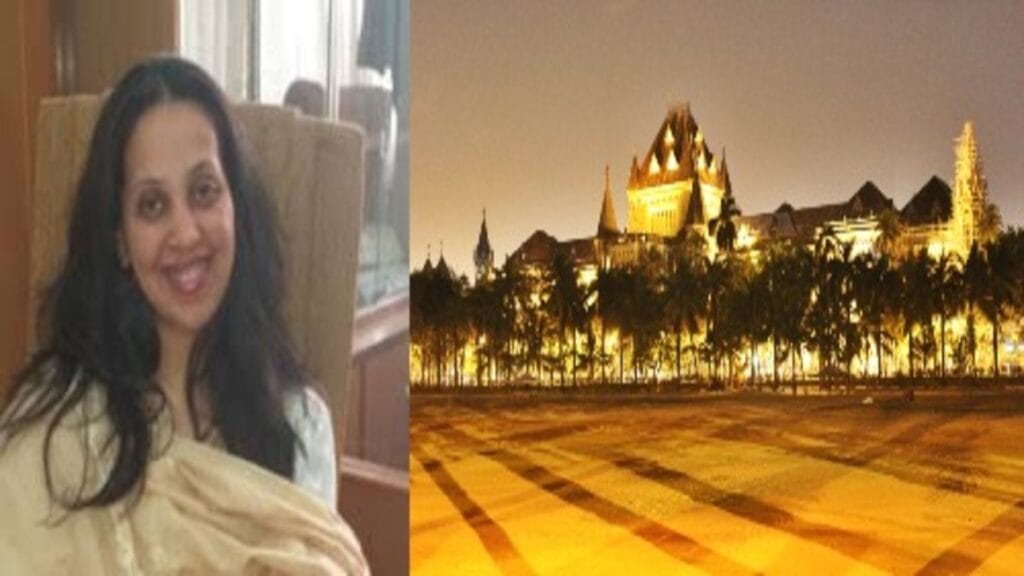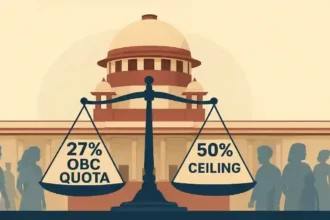
Mumbai, August 7: The recent appointment of Aarti Sathe, a Bharatiya Janata Party (BJP) spokesperson, as a judge of the Bombay High Court has ignited a political storm, raising fundamental questions about the independence of the judiciary and the ethical boundaries between politics and justice.
The Supreme Court collegium, comprising five senior most judges, cleared her name for elevation to the Bombay High Court, triggering sharp criticism from opposition leaders and civil society members alike.
Who is Aarti Sathe?
Aarti Sathe, a practicing lawyer and BJP spokesperson, has had a notable legal career, including stints as a government pleader and involvement in several significant public interest litigations. However, her visible affiliation with the BJP has become the focal point of controversy surrounding her elevation to the bench.
Critics argue that Aarti Sathe’s appointment represents a dangerous precedent where active political figures are being transitioned into judicial roles, potentially compromising the very foundation of impartial justice delivery.
Political Affiliations and Judicial Neutrality: A Blurry Line?
The judiciary in India has long been viewed as the final pillar of democracy — independent, impartial, and above political influence. However, Aarti Sathe’s appointment has triggered fresh concerns that this neutrality may be eroding.
Opposition leaders, including senior Congress and AAP members, have come down heavily on the decision. An opposition MP stated:
“This is not just an appointment; it is a reflection of the judiciary slowly bending to political will. A spokesperson of a ruling party should not be sitting on a constitutional bench deciding the fate of citizens.”
Tensions Around Collegium System
The collegium system, under which judges are appointed in India, has been under intense scrutiny in recent years. While the government has attempted to reform the system through the now-defunct NJAC, the judiciary has retained its authority in judicial appointments.
Now, with the Aarti Sathe appointment, questions are being raised not only about executive interference but also about the discretion and transparency of the collegium itself.
Critics Call it “Judicial Dictatorship”
Several opposition parties have labeled the move as an example of “judicial dictatorship,” where a few top judges, in collusion with the ruling government, are making opaque decisions with far reaching consequences.
Aarti Sathe’s appointment has also drawn criticism on social media. Legal scholars and former judges have expressed concern over the long-term implications of such appointments.
Need for Reform and Transparency
The debate has reignited calls for reforming the judicial appointments system. Legal experts argue that unless there is a clear separation of political affiliations from the judiciary, public trust in the legal system will continue to erode.
The Aarti Sathe appointment is not an isolated incident. In the past, several legal experts with political backgrounds have been appointed to judicial positions. However, critics say this is the first time such a direct and visible political figure has been elevated, signaling a more blatant overlap of politics and judiciary.
Conclusion
As the country watches closely, the Aarti Sathe appointment has become a litmus test for India’s judiciary. Will the courts retain their independence, or are we witnessing the silent politicization of the judiciary?
For now, the appointment remains final, but the ripple effects it creates will likely shape the discourse on judicial integrity and political neutrality for years to come.
Stay Connected with The News Drill for updates on this story and more insights into judicial and political developments.
Submit a tip or story: editor@thenewsdrill.com
Contact us: contact@thenewsdrill.com

















